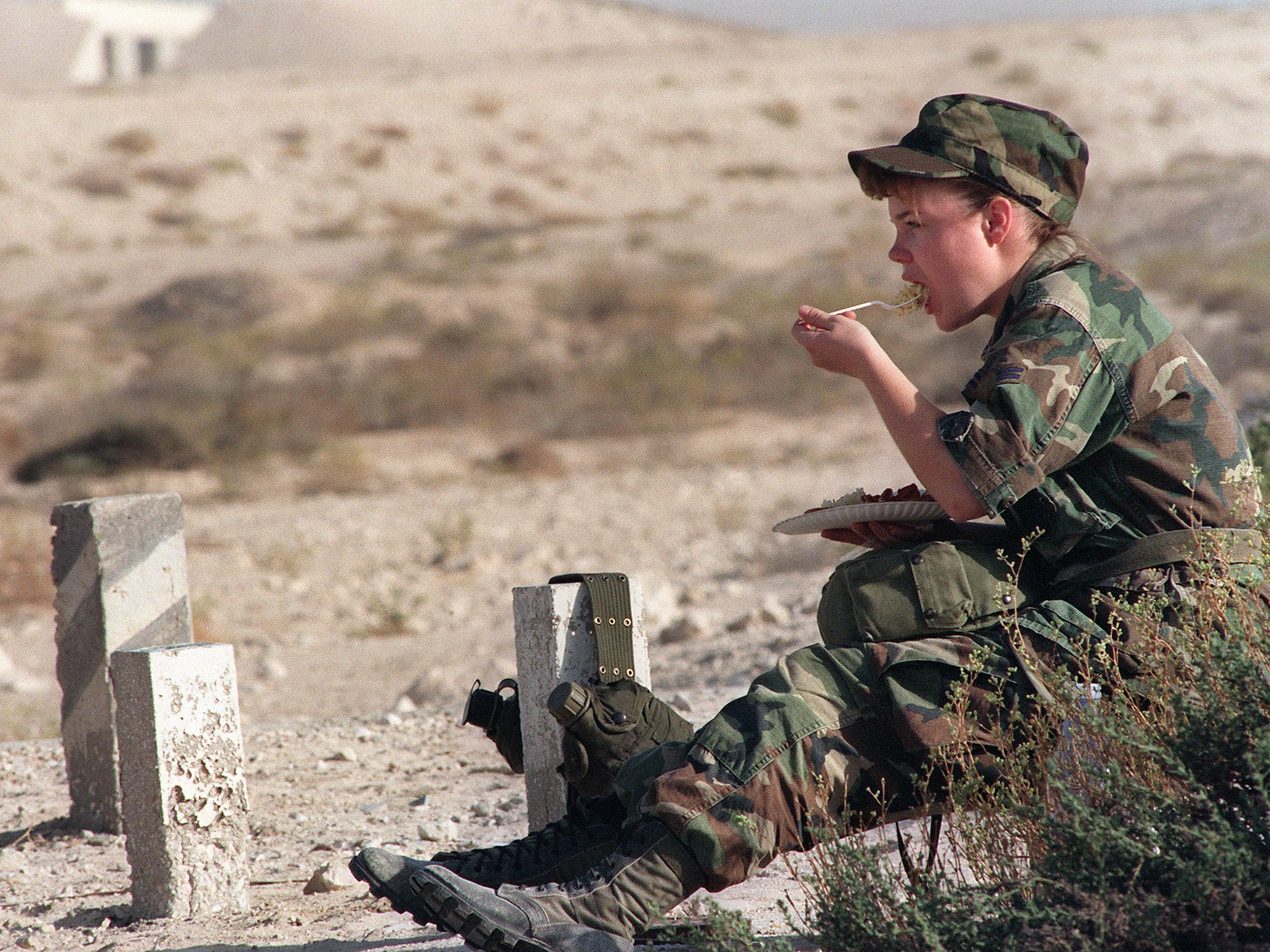Female service members sue over US combat exclusion policy

Your support helps us to tell the story
From reproductive rights to climate change to Big Tech, The Independent is on the ground when the story is developing. Whether it's investigating the financials of Elon Musk's pro-Trump PAC or producing our latest documentary, 'The A Word', which shines a light on the American women fighting for reproductive rights, we know how important it is to parse out the facts from the messaging.
At such a critical moment in US history, we need reporters on the ground. Your donation allows us to keep sending journalists to speak to both sides of the story.
The Independent is trusted by Americans across the entire political spectrum. And unlike many other quality news outlets, we choose not to lock Americans out of our reporting and analysis with paywalls. We believe quality journalism should be available to everyone, paid for by those who can afford it.
Your support makes all the difference.Four female service members filed a federal lawsuit Tuesday seeking to overturn the Pentagon's exclusion of women from many combat roles, arguing that the restrictions are unconstitutional and have hindered their careers.
The plaintiffs have all served in Iraq or Afghanistan and each performed dangerous combat-related missions. Two were awarded Purple Hearts — a combat decoration — after they were wounded on the battlefield.
"The shrapnel that tore through the vehicle that day didn't stop because I'm a female," Army Staff Sgt. Jennifer Hunt, who was injured in Iraq by a roadside bomb while she was riding in a Humvee, said in a telephone interview. She said the Pentagon's combat exclusion policy assumes that women are less capable than men, "which is I think one of the biggest errors the military can make."
The lawsuit, filed in U.S. District Court in San Francisco against Defense Secretary Leon Panetta, is the latest legal attempt to force the Pentagon to lift its longstanding ban on women serving in most ground combat units. In May, two female Army reservists filed a similar lawsuit in U.S. District Court in the District of Columbia.
In both cases, the women are accusing the Pentagon of moving too slowly to recognize the reality of modern war zones, where the military has become dependent on female troops to fight the enemy even though on paper they are barred from doing so in many cases. In addition to Hunt, the plaintiffs are Marine Capt. Zoe Bedell, Marine 1st Lt. Colleen Farrell and Air Force Maj. Mary Jennings Hegar.
Responding to pressure from Congress and female veterans, the Pentagon announced in February that it would open about 14,000 combat-related positions to female troops, including tank mechanics and intelligence officers on the front lines.
But the Defense Department said it would keep 238,000 other positions — about one-fifth of the regular active-duty military — off-limits to women, pending further review. Virtually all of those jobs are in the Army and Marine Corps.
George Little, a Pentagon spokesman, said Tuesday that Panetta has asked each branch of the armed services to continue to explore what other jobs could be opened to women. "His record is very strong on this issue," Little told reporters.
The biggest previous advance for women in uniform came in 1994, when the Clinton administration removed restrictions on more than a quarter-million troop slots. Since then, however, the Pentagon has kept in place a prohibition on women serving in units whose primary mission is "direct" ground combat, such as artillery, infantry and tank units.
In practice, however, many women serve in close support of ground combat units, blurring any distinctions on the battlefield.
The suit was filed by the American Civil Liberties Union. The Service Women's Action Network, which advocates on behalf of women in the military, is also a plaintiff.
Since 2001, about 290,000 women have deployed as part of the wars in Iraq and Afghanistan, according to Defense Department statistics. Of those, 152 have been killed and 951 have been wounded.
Overall, women make up about 14 percent of the active-duty military.
Join our commenting forum
Join thought-provoking conversations, follow other Independent readers and see their replies
Comments